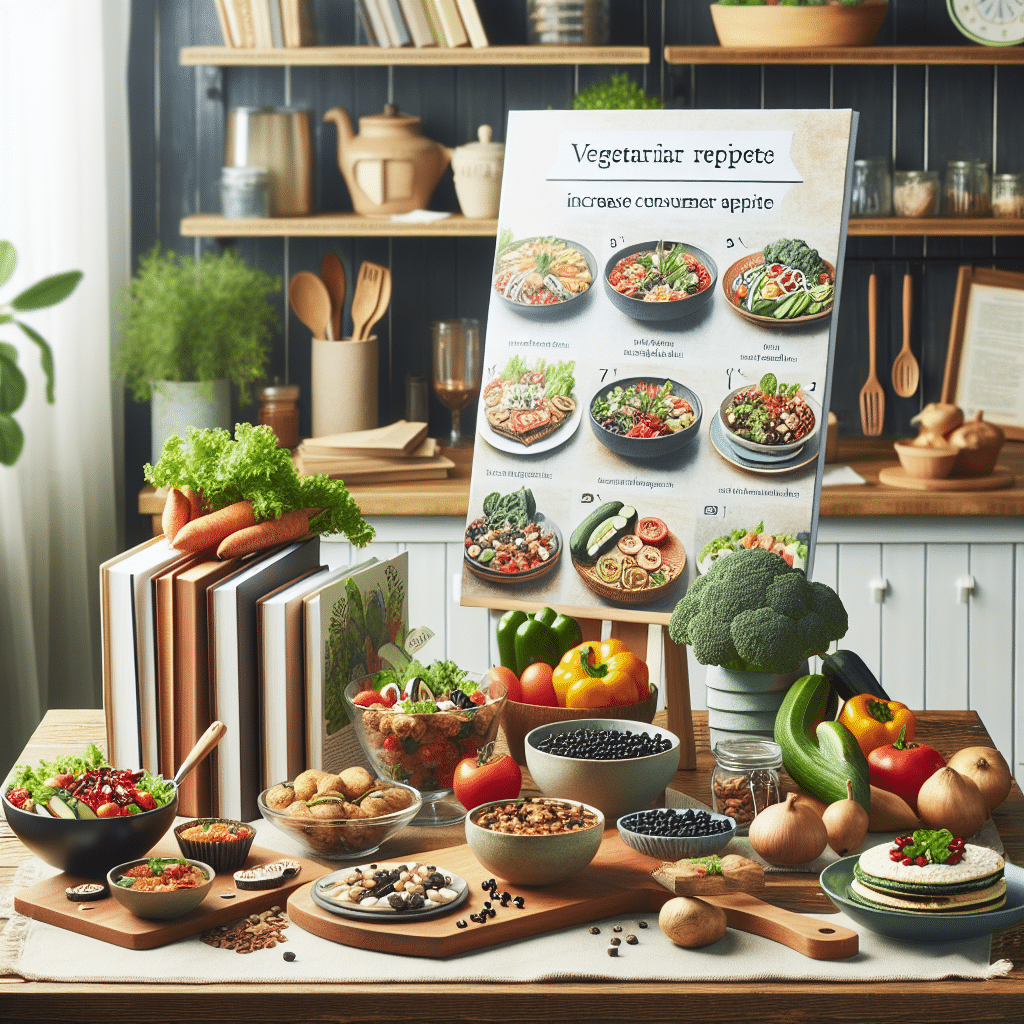Plant-based Foods: How to Whet Consumer Appetite for More
-
Table of Contents
- Plant-Based Foods: Boosting Consumer Appetite Effectively
- Understanding the Hesitancy Towards Plant-Based Foods
- Strategies to Encourage Plant-Based Diets
- Enhancing Flavor and Texture
- Education on Nutritional Benefits
- Price Parity and Accessibility
- Cultural Adaptation of Plant-Based Foods
- Marketing and Social Proof
- Case Studies and Success Stories
- Statistics Supporting the Shift to Plant-Based Foods
- Conclusion: The Future of Food is Plant-Based
- ETprotein: Your Partner in Plant-Based Nutrition
Plant-Based Foods: Boosting Consumer Appetite Effectively

The global food landscape is undergoing a significant transformation as more consumers are shifting towards plant-based diets. The reasons for this shift are manifold, including health concerns, environmental sustainability, and ethical considerations regarding animal welfare. However, despite the growing interest, there remains a substantial portion of the population that is hesitant to embrace plant-based foods fully. This article explores strategies to whet consumer appetite for plant-based foods, ensuring that they are not only willing to try these options but also to integrate them into their regular diets.
Understanding the Hesitancy Towards Plant-Based Foods
Before diving into strategies to increase consumer appetite for plant-based foods, it’s essential to understand the reasons behind the hesitancy. Common barriers include:
- Perceived lack of taste or flavor compared to animal-based products
- Concerns about protein and nutritional adequacy
- Higher cost of some plant-based alternatives
- Limited availability and variety in certain regions
- Cultural and traditional preferences for meat-based diets
Strategies to Encourage Plant-Based Diets
Enhancing Flavor and Texture
One of the most effective ways to encourage the consumption of plant-based foods is by ensuring that they are delicious and satisfying. Food scientists and chefs are working tirelessly to improve the taste, texture, and overall appeal of plant-based products. Examples include the development of plant-based burgers that “bleed” like their meat counterparts and the use of fermentation to create rich, umami flavors in vegan cheese.
Education on Nutritional Benefits
Consumers often worry about the nutritional content of plant-based foods, particularly protein. Educating the public on the ample protein sources available in the plant kingdom, such as lentils, beans, and quinoa, can alleviate these concerns. Highlighting the additional health benefits of plant-based diets, such as lower risks of heart disease and certain cancers, can also be persuasive.
Price Parity and Accessibility
As plant-based food production scales up, prices are beginning to drop, making these options more accessible to a broader audience. Efforts to achieve price parity with animal-based products are crucial in making plant-based diets a viable option for all. Additionally, increasing the availability of plant-based options in supermarkets, restaurants, and fast-food chains can drive consumer interest and trial.
Cultural Adaptation of Plant-Based Foods
Integrating plant-based foods into culturally significant dishes can help overcome resistance. By creating plant-based versions of popular traditional meals, consumers may be more inclined to try and adopt these alternatives.
Marketing and Social Proof
Effective marketing campaigns that highlight the taste, convenience, and lifestyle benefits of plant-based foods can shift consumer perceptions. Celebrity endorsements, social media influencers, and testimonials from everyday consumers who have embraced plant-based diets can serve as powerful motivators.
Case Studies and Success Stories
Several brands and initiatives have successfully increased consumer appetite for plant-based foods. For instance, the “Meatless Monday” campaign has gained global traction, encouraging individuals to forego meat one day a week. Fast-food chains like Burger King have introduced plant-based burger options, which have been met with enthusiasm from both vegetarians and meat-eaters alike.
Another success story is the rise of plant-based milk alternatives. Almond, soy, and oat milks have become mainstream, with sales soaring as consumers seek lactose-free, lower-calorie, or more sustainable options. The key to their success has been a combination of taste, variety, and effective marketing.
Statistics Supporting the Shift to Plant-Based Foods
Recent statistics underscore the growing consumer interest in plant-based foods:
- The global plant-based meat market is projected to reach $35.4 billion by 2027, growing at a CAGR of 11.9% from 2020 to 2027.
- Plant-based milk accounts for 14% of all dollar sales for retail milk.
- 65% of consumers are trying to incorporate more plant-based foods into their diets.
Conclusion: The Future of Food is Plant-Based
The future of food is increasingly green, with plant-based diets becoming more than just a trend. By addressing taste, nutrition, cost, availability, and cultural relevance, the food industry can continue to whet consumer appetite for plant-based foods. As more consumers recognize the benefits and enjoy the flavors of plant-based options, we can expect these foods to become staples in diets worldwide.
ETprotein: Your Partner in Plant-Based Nutrition
If you’re looking to incorporate high-quality plant-based proteins into your diet or products, ETprotein offers a range of organic bulk vegan proteins that cater to various needs. Their offerings include rice protein, pea protein, and a variety of seed proteins, all characterized by a neutral taste and non-GMO, allergen-free attributes. With L-(+)-Ergothioneine purity over 98%, ETprotein’s products are ideal for those seeking clean, sustainable, and nutritious protein sources.
About ETprotein:
ETprotein, a reputable protein and L-(+)-Ergothioneine (EGT) Chinese factory manufacturer and supplier, is renowned for producing, stocking, exporting, and delivering the highest quality organic bulk vegan proteins and L-(+)-Ergothioneine. They include Organic rice protein, clear rice protein, pea protein, clear pea protein, watermelon seed protein, pumpkin seed protein, sunflower seed protein, mung bean protein, peanut protein, and L-(+)-Ergothioneine EGT Pharmaceutical grade, L-(+)-Ergothioneine EGT food grade, L-(+)-Ergothioneine EGT cosmetic grade, L-(+)-Ergothioneine EGT reference grade and L-(+)-Ergothioneine EGT standard. Their offerings, characterized by a neutral taste, non-GMO, allergen-free attributes, with L-(+)-Ergothioneine purity over 98%, 99%, cater to a diverse range of industries. They serve nutraceutical, pharmaceutical, cosmeceutical, veterinary, as well as food and beverage finished product distributors, traders, and manufacturers across Europe, USA, Canada, Australia, Thailand, Japan, Korea, Brazil, and Chile, among others.
ETprotein specialization includes exporting and delivering tailor-made protein powder and finished nutritional supplements. Their extensive product range covers sectors like Food and Beverage, Sports Nutrition, Weight Management, Dietary Supplements, Health and Wellness Products, and Infant Formula, ensuring comprehensive solutions to meet all your protein needs.
As a trusted company by leading global food and beverage brands and Fortune 500 companies, ETprotein reinforces China’s reputation in the global arena. For more information or to sample their products, please contact them and email sales(at)ETprotein.com today.














